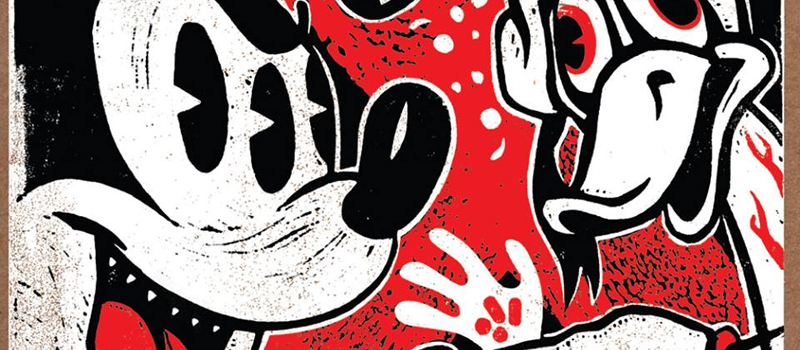I’ve always considered Curtis Eller to be the prototypical underground banjo player. He crafts song-stories about history (or more appropriately, history through a warped contemporary lens) with an Americana flare and P.J. Barnum hucksterism; his banjo, as vibrant as a ringing electric guitar, drives the compositions front and center. Little Mazarn, whose self-titled outing will be released next week via Self-Sabotage Records, plants itself firmly on the other side of the spectrum, making filmy ballads that place spare, reverb-drenched banjo measures alongside Lindsey Verrill’s tender, longing voice. In other words: this is slowcore, even dreadcore, folk that sounds, at times, like it was recorded at a slower speed than you’re used to hearing a banjo.
Verrill, for sure, does some amazing things on the too-short debut. The opening “In Dreams,” where Verrill’s ghostly banjo measures are accented by what sounds like a musical saw, echoes Black Heart Procession but is somehow more resolute, less dirge-ish, more adept at creating drama without the drama.
The murder ballad “Rain and Snow” is haunted, ephemeral .“White Fang” is devastatingly fragile to a fault. Even when Verrill tips her hat at lusher moments – the reach-for-the-clouds voices on “Love Is All Around You” are carefully multi-tracked during the chorus – the landscape still is pretty barren. (I mean that lovingly.) This is the music Sam Beam or Damien Jurado make when they’re sad-drunk and alone.
What you think of Little Mazarn will depend, largely, on how you view loneliness. From the banjo echoing, a bell unanswered, to the plaintive singing or the spare accompaniment here and there, the record is assuredly a solitary affair. Instead of referencing Eller, consider fellow antique-gardist Robin Aigner at her most melancholy: strip her bare, remove a layer of skin so every emotion seeps more quickly into your system, and you’ll get an idea of Verrill’s M.O.
All in all, a fine outing.
-30-





Comments
Comments are closed.